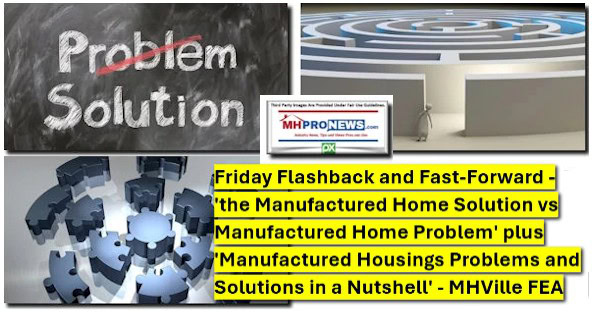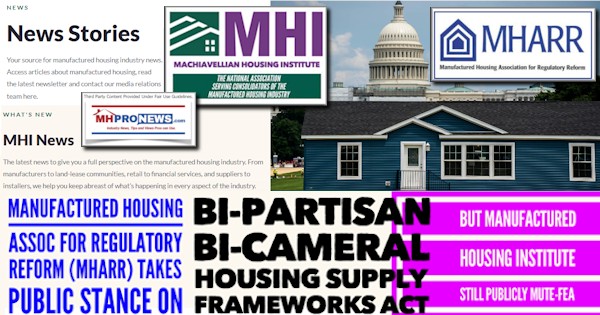
Some 2.9 million households are sited in 45,000 manufactured home communities across the nation, and this proposal would improve lending standards and credit availability for manufactured home (MH) owners, according to nationalmortgagenews. Developing a secondary market could lower finance costs and improve consumer protection for MH consumers.
Ishbel Dickens, executive director of the National Manufactured Home Owners Association, says the relationship between the MHC owner and resident is a bad business model, although many states have ordinances that protect residents, and reimburse them if they have to move. She also opposes regulatory reform that would protect the values of the four million people who live in manufactured homes valued at $20,000 or less, thus harming the people she alleges to assist.
At one point she says the manufactured home is nearly worthless after ten years. Do not say that to Cavco, or Clayton, or Deer Valley or Skyline, or any other manufacturer of HUD Code homes. Studies have shown that new manufactured homes do not depreciate any faster than traditional site-built homes.
Dick Ernst, chairman of the Manufactured Housing Institute’s (MHI) financial services committee, and a long-time veteran of manufactured home lending, says the government-sponsored enterprises (GSEs) are supposed to have been making a market for all forms of housing. While they do participate in lending to owners of MHCs, they’ve done little with individual consumers.
“We are very, very close to meeting with Mr. Watt to begin serious discussions on Fannie and Freddie providing a secondary market for home-only or chattel transactions, which is a big part of our industry,” Ernst said.
Doug Ryan, director of affordable housing initiatives at the non-profit Corporation for Enterprise Development, noting one of the reforms will be an extension of leases in MHCs beyond the standard one-year, said, “We do see this as an impetus for the industry to offer longer-term leases. The lease must be as long as the mortgage. We are committed to that.”
Although Freddie balked at the duty to serve proposal in 2009, saying “loans not secured by land present substantially greater risk compared to land-owned homes,” and that the availability of mortgage insurance is uncertain, the FHFA under the direction of Mel Watt will likely prevail.
Meanwhile, as of Jan. 2014 chattel loans are now under the Home Ownership and Equity Protection Act (HOEPA), but manufactured home loans of $20,000 or less are not economical to make under the new rules, depriving approximately 1.7 million owners of MH the ability to finance the sale of their homes. It is not profitable for lenders to make these types of loans.
As MHProNews knows, lenders are thus pushing legislation in congress, the Preserving Access to Manufactured Housing Act, which will raise the HOEPA threshold for smaller loans and which the House passed in April. The Senate version passed the Senate Banking Committee but has yet to reach the Senate floor. Consumer groups, however, oppose this legislation because of the higher interest rate.
At a Senate Banking Committee hearing, Senators Tom Cotton (R-AR) and Bob Corker (R-TN) told CFPB Director Richard Cordray that families in rural areas often depend upon MH as affordable housing. Said Sen. Cotton, “In rural areas, there is not a lot of new single-family homes or a large stock of multifamily rental units.”
Cordray responded, “I do remain concerned that credit is tight at the lower dollar level. I think we should look at it some more. Maybe there should be changes there.”
For L. A. “Tony” Kovach’ thehill blogpost, Regulations for Manufactured Home Loans, which documents the continuing need for Congressional action, please click here. ##
(Image credit: mortgageorb)


























